Interpreting Live-Action Adaptations of Anime
Anime is a medium of entertainment from Japan that is distinguished by its characteristic style, design, color palettes, extravagant stories, and characters of widespread genres and themes. In fact, the word anime is the Japanese shorthand for animation, and refers to all forms of Japanese animated media.
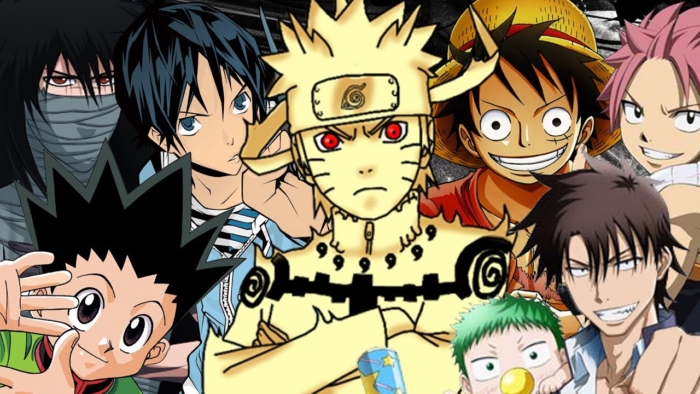
The arrival of the digital age led to the gradual and widespread proliferation of animated media from all corners of the world. Reception towards Japanese anime in the West evolved from a niche audience in the 1960s to its present-day mainstream popularity. Further progress in the fields of animation and cinema have led to a growing interest in the transformation of anime shows into live-action adaptations. These adaptations have been shared with Western and Japanese audiences alike; their subsequent reception has been polarizing and demonstrate the influence culture and societal perspectives play in the continual evolution of the anime industry.
Tezuka & Disney: East meets West
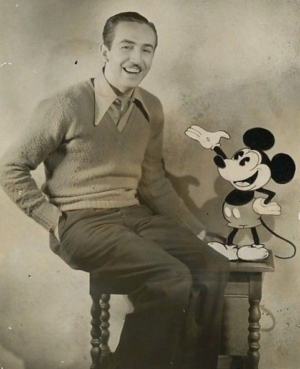
Anime has common roots with Western animation harking back to the early days of Walt Disney and Osamu Tezuka.Both men were influenced and inspired by each other’s works and guided the mainstream development of the animation industry in their respective nations. While anime is strictly differentiated from Western animation, the differences can be relegated to a unique and stylized interpretation of Western cartoons in the East. Interestingly, in Japan, Disney movies are collectively referred to as Disney anime.
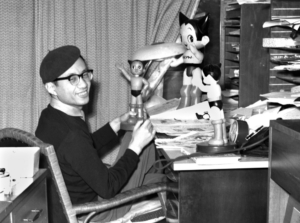
The stories authored by Disney, Tezuka, and their counterparts served as representations of their cultures and were highly influenced by the political and historical landscapes of their era. The first Japanese anime to make landfall in the West was Osamu Tezuka’s Astro Boy in the 1960s. Tezuka would state that the inspiration for his iconic nuclear-powered but peace-loving boy robot came from being punched in the face by a drunken GI. Although its Japanese origins were underplayed in the West, Astro Boy set the standard and aesthetic for the stylized cartoons that would later become recognized worldwide as anime.
Anime Live-Action Adaptations
Live-action adaptations refer to a form of cinematography where caricatures, models, and images that are usually drawn or produced by a computer are brought to life by replacing animation with real people or animals. Notable examples of anime live-action adaptations include popular titles such as Death Note, Rurouni Kenshin, Ghost in the Shell, and Shingeki no Kyojin (Atttack on Titan), etc. Live-action cinematography can also be combined with animation to produce a live-action animated film.
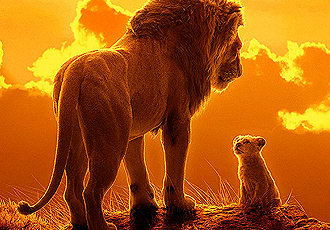
Adapting a beloved anime into a live-action movie or series is no easy task, and directors often face an up-hill battle against the various factors that may contribute to their work’s success or failure. Among the most recent of live-action adaptations that have met with relative success despite mixed reviews are Death Note (2017), Ghost in the Shell (2017), and Shingeki no Kyojin (2015).
Case Studies: Death Note (2006 & 2017) vs. Ghost in the Shell (2017) vs. Shingeki no Kyojin (2015)
Death Note is a study in contrast when comparing the Japanese adaptation released in 2006 with the Western adaptation released in 2017. Compared to the latter, the 2006 adaptation retains great reviews in the domestic and international turfs.
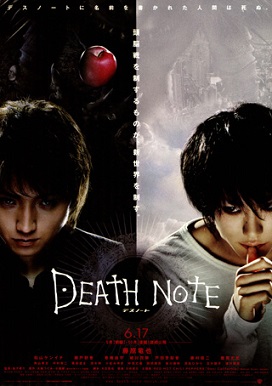
The 2017 adaptation, upon announcement, was beset with high expectations while receiving its fair share of controversy involving Hollywood whitewashing concerning the cast. The final product experienced a poor run at the box-office and has been widely panned by critics and anime fans alike.
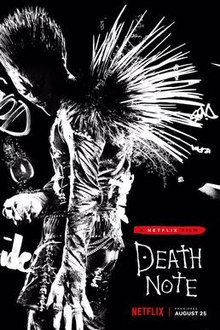
A similar atmosphere beset another Hollywood adaptation of a classic Japanese anime in Ghost in the Shell. The movie released to mixed reviews and was ultimately not as successful as expected. Surprisingly, unlike the case of 2017’s Death Note, Ghost in the Shell was well-received within Japan.
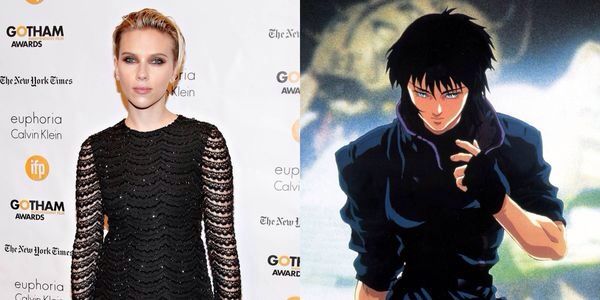
Japanese audiences commended director Rupert Sanders and co. for having done their homework and demonstrating a sincere appreciation of Masamune Shirow’s original manga. Hollywood’s choice of a white actress to play the titular role of Major Motoko Kusangi invited controversy. But, these controversies were largely immaterial in the eyes of the native audience who felt that the source material’s themes of self-identity, and the use of artificial and natural bodies blurred the lines of casting specifications. Additionally, there was the obvious reasoning that a Hollywood production would naturally choose a white actress.
When it comes to a unanimous response from Western and Japanese fans alike, the live-action adaptation of Shingeki no Kyojin takes the top spot, in disappointment that is. The critics’ misplaced comparisons of the film’s special effects with Hollywood’s standards led to director Nishimura to respond:
“I’m sorry, but deciding what movies to see based on their budget, and comparing everything to Hollywood, that’s like how some people feel secure buying Okame natto when they go to the supermarket”. Higuchi referenced one critic of the film’s characters, saying “who’s the idiot who gave this guy an early release of the film?!”
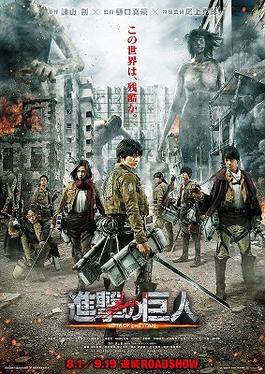
While fans sympathized with the director on this front, given the meager budget of the film production, the film’s deviation from the source material was not welcome with replacements of popular characters such as Levi Ackerman leading to great displeasure within the anime community. Though the live-action adaptation failed to impress the Western and Japanese anime audiences, it was deemed entertaining by the neutral fan with no exposure to the manga or its animated counterpart.
Forming an Opinion
For every laudable adaptation like the Rurouni Kenshin series, there have been an equal share of disasters in the making by both Hollywood and Japanese studios alike. Setting aside practical elements such as budget, production costs, casting choice, and the directorial personnel involved, the examples discussed so far demonstrate that audiences mainly expect the adaptation to be honest and true to the source material. This is a highly subjective viewpoint as opinions on creative freedoms regarding the adaptation of a work differ greatly from one individual to another.
In adapting a beloved anime to the live-action medium, the director must satisfy three classes of audience: the critics, the dedicated anime fan, and the neutral audience. It is indeed an up-hill battle. Thus, in trying to cater to all three classes of viewers, directors often exercise their own subjective preference toward the source material leading to its modification and the adaptation often losing its original message. In the cases of anime such as Dragonball Z or Jojo’s Bizarre Adventures, the very medium of live-action is met with mixed response as the suspension of disbelief provided by the animated medium is lost in reality. A similar case could be argued for Disney’s 2019 remake of The Lion King.
The problem here is one that is encountered in all forms of artistic media. Adapting an original work automatically elicits a level of subjective interpretation by the maker as well as the audience. No adaption can be deemed perfect on all accounts. Some have come close but for every fan who loves the live-action adaptation of Rurouni Kenshin or Death Note (2007), there remains a fair share of the population who differ on said account. Thus, the notion of “staying true to the source material” becomes a subjective standard of merit in judging an adaptation.
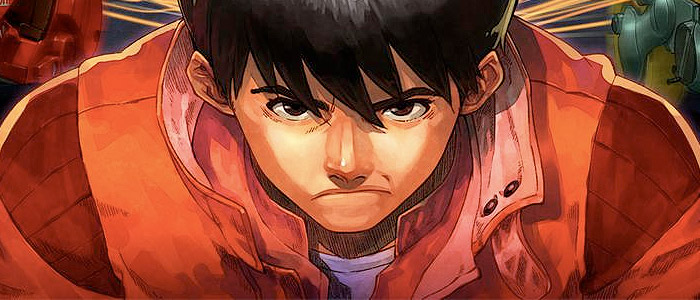
Film, as an art, is an interpretative medium. By creating and judging these live-action adaptations it is important to remember that what may work for one individual may not be the same for another. Nevertheless, this does not immediately bode a disaster. What matters is that one is true to the spirit of the source material while providing their own interpretation, no matter how different it may be, of another’s work.
In the end, it’s all relative.
Works Cited
“Anime”.Anime News Network. https://www.animenewsnetwork.com/encyclopedia/lexicon.php?id=45
Tezuka Osamu Monogatari, Tezuka Productions, 1992.
Ohara, Rika. “Mighty Tezuka”.Blue Fat.January 2002. http://www.bluefat.com/0910/Mighty_Tezuka.htm
Lambert, David (2006-07-01). “Astroboy – Press Release for Astro Boy (1963) – Ultra Collector’s Edition Set 1 DVDs!”. TVShowsOnDVD.com. Archived from the original on 25 April 2009. https://web.archive.org/web/20090425023608/http:/www.tvshowsondvd.com/news/Astroboy/4850
“Live-action”. Merriam Webster Online Dictionary. Merriam-Webster. Retrieved November 25, 2019. https://www.merriam-webster.com/dictionary/live-action
“Live-action”. Cambridge English Dictionary. Retrieved November 25. 2019.https://dictionary.cambridge.org/dictionary/english/live-action
“Get It Right: Disney Is Doing An Animated—Not Live-Action—Remake of ‘The Lion King'”. Cartoon Brew. September 28, 2016. https://www.cartoonbrew.com/feature-film/get-right-disney-animated-not-live-action-remake-lion-king-143343.html
“No, Disney Isn’t Making a ‘Live-Action’ Lion King Movie – Mandatory”. Mandatory. September 28, 2016. https://www.mandatory.com/culture/1129001-no-disney-isnt-making-live-action-lion-king-movie
Opam, Kwame. “Ghost in the Shell review: a solid film built on a broken foundation”.The Verge. Mar 29, 2017. https://www.theverge.com/2017/3/29/15114902/ghost-in-the-shell-review-scarlett-johansson
Charity, Justin. “Lost in Translation”. The Ringer. Mar 30, 2017. https://www.theringer.com/2017/3/30/16040324/ghost-in-the-shell-scarlett-johansson-western-anime-adaptations-3e31aeb7f906
Blair, Gavin J. “Scarlett Johansson in ‘Ghost in the Shell’: Japanese Industry, Fans Surprised by ‘Whitewashing’ Outrage”. The Hollywood Reporter. Apr 19, 2016.https://www.hollywoodreporter.com/news/scarlett-johansson-ghost-shell-japanese-885462
Hawkes, Rebecca. “‘You should watch movies that have been hit in the face with stacks of cash’: Attack on Titan filmmakers blast critics”. Telegraph. Telegraph Media Group Limited. Aug 5, 2015. https://www.telegraph.co.uk/film/attack-on-titan/bad-reviews-critics-reaction/
Kurland, Daniel. “Best Live-Action Anime Movie Adaptations”.Den of Geek. Feb 14, 2019. https://www.denofgeek.com/us/movies/anime/279292/best-live-action-anime-movies
Schedeen, Jesse. “12 Essential Live Action Anime Adaptations”.moviefone. Feb 14, 2019. https://www.moviefone.com/photos/12-essential-live-action-anime-adaptations/
Jia, Si. “The Best And Worst Live-Action Anime Movies Ever Made”.Geek Culture. July 23, 2018.https://geekculture.co/the-best-and-worst-live-action-anime-movies-ever-made/
Stone, Sam. “Hollywood’s Live-Action Anime Remakes Ranked, According to Critics”.CBR Exclusives. Feb 21, 2019. https://www.cbr.com/hollywood-live-action-anime-remakes-ranked/3/
Maher, John. “Now That Anime Is Cool, Hollywood Wants to Ruin It With Live-Action Remakes”.Thrillist. Jul 15, 2019. https://www.thrillist.com/entertainment/nation/live-action-anime-reboots
What do you think? Leave a comment.




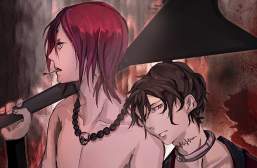


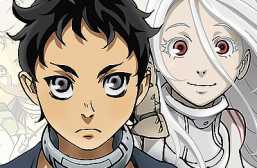
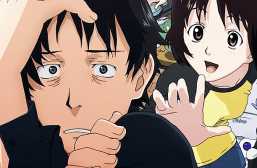
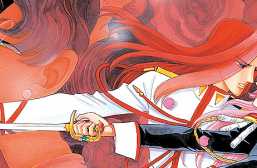
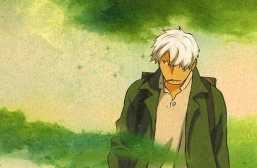
Remakes, re-boots, sequels, prequels etc. however bad, do not diminish the originals, however much cry baby man-child internet commenters claim otherwise.
Absolutely. I don’t think they diminish the originals at all. After all, every adaptation is an interpretation of the original in its own way. Some turn out to be successful in roping audiences in, and others not so much. But given the current generation where social media is so prevalent, it is a tough measure to satisfy everyone.
It all comes back to gatekeeping. The idea that a new audience might be introduced to a thing they love should be cause for celebration, but they tend to think that nobody else could love or understand it like they do.
I can’t remember the name of the author, but when he was interviewed in his home by a journalist who said something like “It’s too bad your novel was ruined by the people who turned it into a film,” the novelist said “What do you mean ‘ruined?'” (Pointing to his book on his shelf) “It’s right there.”
My primary reaction to reboots and adaptations is “Good Lord, Why?!!” (for the money, of course). However, some results are good: the new Battlestar Galactica was much better than the original (in my humble opinion), and the Lethal Weapon series is really entertaining. But other are pure disasters (for me there is only a Magnum PI and he has the face of Tom Selleck)
The adaptation to live-action from an animated source is tricky. The Japanese do all the time (there can be manga, and anime, and live action series or movie for the same material), and some times the quality is even (example in point, Erased, that you can find in Netflix). But in general it does not work because they are different media. What you can do with animation is not equivalent to live action.
Sometimes classics should be that, and not be messed up with remakes or prequels, sequels or anything alike.
What about Assassination Classroom? It’s such a great live action anime and has become one of my favourite movies period.
I wasn’t aware Ansatsu Kyoshitsu had a live-action! How did I miss this. I’ve always found that live-action adaptations involving anime that are a little more grounded in reality have been better.
You don’t watch too many movies, right?
Well, that’s all relative is it not? Yes, I wouldn’t say I have watched THAT many movies. However, I have probably seen more than you have anticipated. The reason I love the AC move is because it’s so faithful to the actual series. It was great seeing funny moments from the anime/manga translate into live action. And especially seeing Korosensei, a character who I look up to heavily in fiction. Just because it’s one of my favourite movies, doesn’t mean I don’t watch others. You’re evidently one of those people who believe their opinion to be superior to others.
The live action Death Note movies weren’t bad. I don’t know as I’d say any live adaptation of anime or manga was particularly good, though.
Miike should be the only one to do live adaptions. Ichi the killer, crowz zero, blade of the immortal, as the gods will wasn’t that great though.
Speed Racer is okay.
Dragonball: Evolution is bad enough that it’s hilarious and fascinating.
Death Note is a genuinely great movie and I consider it superior to the anime.
Battle Royale and Oldboy are also great and equally as good as their source material.
The only god awful ones are The Last Airbender, Ghost in the Shell and Full Metal Alchemist.
Dragonball Evolution had humor written all over it for me.
Death Note I agree was truly superior.
Never seen Old boy but now am gonna check it out.
The Last Airbender was a massive disappointment for me, I gave it a try despite my colleagues’ efforts to not have me watch it. I regret not listening to their advice.
Avatar: The Last Airbender doesn’t even count. That show was an American production with Korean animators. It wasn’t ever anime written for a Japanese audience.
But I agree that the live action monstrosity was a massive disappointment. The only explanation for that movie that makes sense is that M. Night Shyamalan secretly hated the source material from the moment he watched it all the way through filming. At least with the Netflix live action that’s in production, the creators are people who actually like the story and world.
I still remember watching his justification and response to the critics and it just didn’t sound convincing. Like you said, he must hated the source material.
I was not aware of the netflix live action though! Hope it lives up to the scrutiny of its fans.
I really like the part of this article that questioned what it meant to stay true to an original work when adapting it. I don’t mind changes to the plot, as long as I feel the writers understood the story and their changes were informed by that understanding. But yeah, adapting a piece of work to a different medium must be super frustrating, especially knowing how fans tend to react 😑
The manga Ping Pong has a very ok adaptation, highly inferior to the anime, but it’s not completely trash. There is also Baby Cart, that are a series of movies, adapting a manga (if I’m not wrong) and it’s very good.
Rurouni Kenshin was pretty okay. Not great, but it was okay.
I would say that was the one anime series that lends itself to being suited for a live action series. For the most part there was nothing in the anime that couldn’t have been replicated in live action, whereas anime like naruto, one-piece, attack on titan would rely on so much cgi they are better as cartoons or anime.
I think that is one of the biggest limitations of live-action adaptations. Certain anime require a healthy amount of CGI in their live-action counterpart to provide the same level of “naturalness” we feel when we watch the anime. Too much CGI can also be off-putting though.
The case of Disney’s recent The Lion King remake always comes to mind for me whenever this is brought up.
After watching the dreadful version of Full Metal Alchemist, I have developed a serious aversion to watching any more anime remakes.
…and now we wait with baited breath for the live action remake of ‘Cowboy Bebop.’ If the ending is changed to allow for a second season, I’ll put my boot through the screen. See You Space Cowboy.
Anime does not need to be made into RL. Manga and anime are their own artistic mediums. You can do things in manga/anime that you can’t in real life (even with CGI) because what works in drawings just doesn’t work in RL.
Why can’t they spend the money and do something original? There is a massive back catalogue of really good scifi or fantasy books that could be adapted into RL (or even made into anime).
That is so true. It would be awesome if Asimov’s Foundation trilogy were adapted into a movie.
Let’s not mess up with something that was already great just because we are running out of ideas!
Sakamichi no Apollon was great.
Isn’t Edge of Tomorrow a very successful live-action made by Hollywood?
So does this means that any country can make good live-action manga/anime/light-novel movies as long as the materials are taken carefully?
Though mindlessly hating on Hollywood without giving a good constructive argument is much easier…
Edge of Tomorrow is an excellent adaption of a light novel (also made into manga and a graphic novel). Hollywood is better at adapting novels than it has ever been at adapting anime.
I concur. Despite the different ending, Edge of Tomorrow was one of my faves, alongside the classic Tom Cruise running cameo. But altogether hollywood is yet to gain a good track record for adapting Japanese manga as opposed to novels. Personally, I would prefer that they come up with something original.
That’s one out of how many? If anything that only makes it worse for Hollywood because if they can do it once it means they’re just being lazy with the entries afterwards. It is hard to praise the one success hollywood has had after decades of failures.
the problem with Edge of tomorrow is that although the basic outline is the same as the manga alien invaders that reset time, hero gets control of it and theres the fullmetal bitch ect…..it doesnt follow much else though.
Adapting forms of media takes trial and error. It took a long damn time for Hollywood to even work out how to make American comics into movies. I bet anime adaptations will have their time in the spotlight at some point.
The live action series to Erased was good.
Man, I fucking loved Dragon Ball Evolution as a so bad it’s good movie. Me and my sister laughed so much while watching it.
It’s such a guilty pleasure. I desperately want a Director’s Commentary on Dragonball: Evolution. Or a documentary on how it was made. It’s bad in such a fascinating, interesting way, nearly every creative decision in it was wrong and I’m just baffled as to how and why they were made.
A director’s commentary on Dragonball: Evolution would be a popcorn fest. Every now and then, I watch Dragonball: Evolution just for the laughs.
The Japanese Inuyasha and the Death Note live adaptation where quite decent.
The live action movie for, Bleach, is not all bad. But I think it should have been a live action episodic series, instead.
I don’t think bleach was bad at all. Only complaint is that one entire season shouldn’t be in a movie. They will literally cut some good story line.
Netflix have been quietly knocking out quite a few anime/manga adaptations. They’ve done Bleach, Jin-Roh the wolf brigade, Kaiji, I was browsing through the library and apparently there’s an adaptation of Baki the grappler on the way.
They’ve been pretty hit or miss, but watchable enough (even Death Note was sort of entertaining for the final destination death scenes).
Either way even if the adaptation is absolute trash, the series isn’t going anywhere.
Bleach is Warner Bros. Japan. Then Netflix makes a deal and calls it a Netflix original…
Without DBZ Evolution, we wouldn’t have DB Super. Change my mind
Audiences (target or not) of live-action anime adaptations are hard to please. Rightfully so, when majority are fans of the source material. But adaptations are only interpretations of the original work, giving them the creative freedom to tell the story differently but with the responsibility to respect the source. That’s where, I think, most adaptations fail.
Also, anime is a medium that completely suspends belief and a deciding factor are the visuals. The art styles and animation vary from one to another and it can be a reason why anime audiences love the story. So far I’ve noticed producers have gone for the full-fantasy plots that need heavy CGI that requires a big budget so there’s an extra expectation to do visual justice towards fantastical characters.
Not a movie but live-action Erased was done pretty well (and I believe because of its less-blockbustery genre).
I didn’t think that 2017 Death Note was released in the box-office. Wasn’t it just a direct to Netflix release? Either way, although the names were mostly the same, I didn’t see the 2017 DN to be a direct retelling of the manga, but instead a retelling of the general themes of the story, in a new setting with re-imagined characters. Although it wasn’t well received, I still feel like it was better than a vast majority of anime/manga adaptations, for what it’s worth.
Anime live-action films and tv shows continue to improve as time goes by:
The Disastrous Life of Saiki K (2017)
Rurouni Kenshin (2012, 2014, 2021)
Kaguya Love is War (2019, 2021)
Alice in Borderland (2020, 2022)
Despite many shortcomings of live-action anime, I still think that the entire media continues to grow and improve.